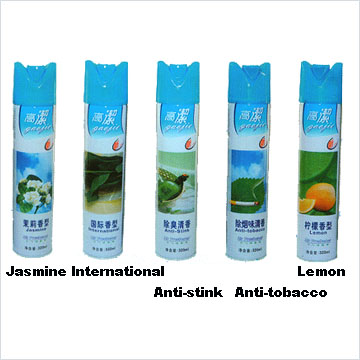Using Air Fresheners Or Cleaning Sprays May Put You At Asthma Risk – A Study
According to European scientist that making use of air fresheners and cleaning sprays at least once a week may raise the user’s risk of developing asthma.

In the second October issue of the American Journal of Respiratory and Critical Care Medicine, Jan-Paul Zock, Ph.D., of the Municipal Institute of Medical Research and international co-workers has reported that normally, the asthma possibility that augmented with frequency of use and the number of sprays, was approx 30% to 50% higher in routine users, mainly women.
Dr. Zock and fellow workers told that the results highlight an imperative public health worry for those who clean their own homes.
Lots of reports have detached unfavorable respiratory outcomes and augmented asthma amongst professional workers who clean homes or commercial and industrial facilities. But, the respiratory results of nonprofessional home cleaning with cleaning sprays have been examined rarely, the scientists wrote.
In order to analyze the risk of new-onset asthma among people utilizing ordinary household cleaners, the researchers used statistics from the European Community Respiratory Health Survey, an epidemiological revision, which comprised 22 centers in 10 countries, together with interviews about nine years later.
The scientists discovered 3,503 persons performing the cleaning in their homes and free of asthma at baseline.
Usage frequency per week of 15 types of cleaning products was found in face-to-face meetings. The partakers were also checked for current asthma, current wheeze, physician-diagnosed asthma, and allergy at the nine-year record.
Two-thirds of the study population doing the cleaning and washing at home were women, ranging from 57% to 87% from country to country.
Around 6% of partakers experienced current asthma indications at the end of the review, while the rate of physician-diagnosed asthma stood at 2.3 per 1,000 person-years.
The use of cleaning sprays at least weekly was associated with an about 50% increase in those with asthma signs or medication use and wheeze.
The incidence of physician-diagnosed asthma was twice as high among those using sprays at least four days a week (RR, 2.11; CI, 1.15-3.89). These associations were not modified by atopy, the researchers said.
Dose-response associations were apparent for the usage rate and the number of different sprays.
The association between spray products and asthma was seen mainly with the majority of commonly used glass cleaners, air fresheners and furniture-cleaning sprays.
Cleaning products including solvent stain removers and washing powders that are not used in spray form were not linked with asthma. The products that used infrequently, such as oven sprays, did not pose a major risk.
The researchers said that this study may also have important implications for public health. Related hazards of 1.3 to 1.5 along with an overall proportion of 42% of spray users hint that exposure to cleaning products could account for as much as 15%, or one in seven adult asthma cases, the researchers wrote.